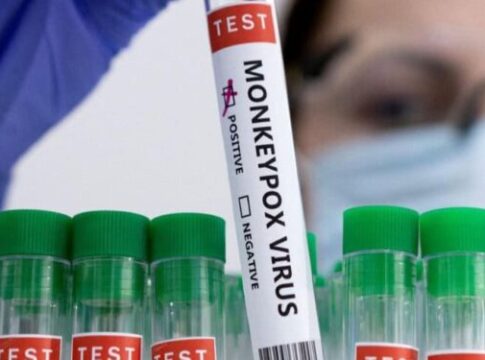A recent analysis by the Nigeria Centre for Disease Control and Prevention (NCDC) reveals a concerning trend in Mpox infections, with males disproportionately affected.
Since the first confirmed cases in September 2017, men have accounted for approximately 70% of the 6,001 suspected and confirmed Mpox cases in Nigeria.
This pattern persists in 2024, with males constituting 67% of Mpox cases recorded from January to date.
The disease has spread across 47 local government areas in 23 states and the Federal Capital Territory, with a total of 1,031 suspected cases and 67 confirmed cases reported this year.
READ MORE: Activists March Against Gender-Based Violence As Cheptegei’s Body Returns Home
Children under five years old are the most vulnerable, followed closely by individuals in the 26-30 and 46-50 age brackets. This demographic distribution underscores the need for targeted interventions to protect these high-risk groups.
Mpox, a viral disease caused by the monkeypox virus, manifests through painful rashes, swollen lymph nodes, and fever. While recovery rates are generally high, severe complications can arise in some individuals.
Fortunately, Nigeria has witnessed no fatalities from Mpox in 2024, marking a significant improvement over the two and seven deaths recorded in 2022 and 2023, respectively.
Globally, the World Health Organization (WHO) has sounded the alarm on Mpox, declaring it a public health emergency of international concern. In response, Nigeria has received a critical donation of 10,000 doses of the Jynneos Mpox vaccine from the United States government.
The WHO’s approval of the MVA-BN vaccine for emergency use also offers hope in combating the outbreak. As Nigeria intensifies efforts to contain the spread, public awareness and vigilance remain crucial.
By understanding the risks and taking proactive measures, Nigerians can safeguard themselves and their loved ones against this infectious disease.




